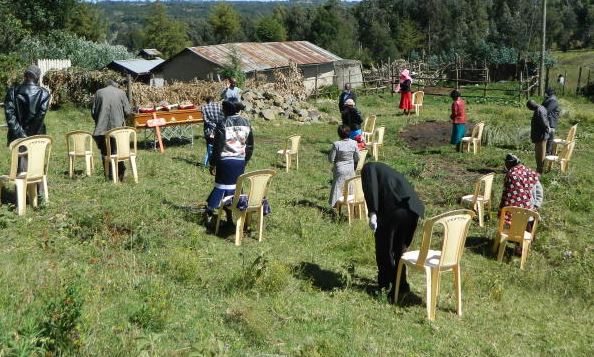×
The Standard e-Paper
Join Thousands Daily

It is exactly 64 days since Zack Onyango got a call that his brother had died from what was suspected to be complications from Covid-19.
Onyango remembers everything. The shock of being informed of the sudden death of his older brother James Oyugi, and the white pickup that snaked into their village carrying the body. It was a few minutes past midnight. Aboard the pickup were health officials dressed in white overalls, goggles and gloves. Not a part of their bodies could be seen.